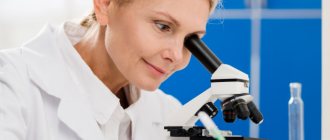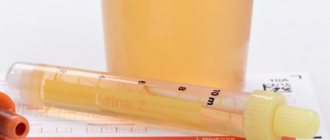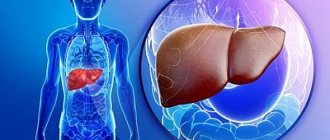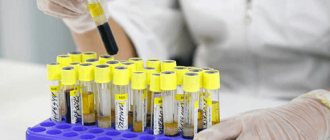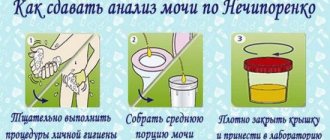Do's and Don'ts before a general blood test
Drink: Drink water in the usual amount, and for children you can even increase the portion a couple of hours before donating blood. This will reduce the viscosity of the blood and make the collection easier. Avoid sugary drinks and alcohol, alcohol affects the number of white blood cells and is eliminated from the body in only three days.
Eat: Eat your last meal 8 hours before your test. It is best to have dinner and come to the laboratory in the morning on an empty stomach. You should especially avoid eating fatty foods, as they can lead to chylosis, which will make the sample completely unsuitable for research.
Exercise: It is advisable to avoid really hard workouts and a lot of stress the day before the blood test. A bathhouse is contraindicated, as is swimming in an ice hole; all this will affect the final results.
Instructions for collecting daily urine (urine hormones)
To obtain reliable results, you must refrain from physical activity, drink alcohol, go to bed the night before at your usual time, and exclude bananas, avocados, cheese, coffee, cocoa, tea, and beer 48 hours before the test. If possible, exclude antibiotics tetracy, quinidine, reserpine, tranquilizers, MAO inhibitors, adrenergic blockers 4 days before the study (in consultation with the doctor).
Before collecting daily urine, prepare a container (at least 3 liters), a sterile plastic container with a volume of 60 ml for transporting urine, a preservative for daily urine (a sample of citric acid) (check with the administrator of the medical center regarding the need for a preservative). During morning urination, completely empty the bladder, pour out this portion of urine, and note the exact time when urine collection begins. All urine excreted after the first urination during the day should be collected in a 3-liter container, which should be stored in the refrigerator (do not freeze). When using a preservative, add it to the first portion of urine and mix thoroughly until completely dissolved. Close the container tightly and stir the contents each time. After 24 hours, i.e. The next morning, empty your bladder and add this portion to the container for collecting daily urine.
IMPORTANT: if by mistake at least one portion of urine was not collected in a container, then all the urine must be poured out and collection must be done again - the results of the study may be incorrect. Then mix the urine in a large container, measure the resulting volume and write it down. Take about 50 ml of collected urine into a sterile container and deliver it to the medical center.
These and other urine tests can be done in our clinics.
Dos and don’ts before biochemical tests: general biochemistry, cholesterol, glucose
Drink: Drink as usual, but make sure it's water and not soda or alcohol. It is advisable to eliminate coffee and tea one day before.
There are: before a biochemical blood test there are most restrictions on food. The day before donating blood, it is necessary to exclude from the menu fatty foods (it will affect cholesterol levels), sweets in large quantities, even grapes (the biochemical complex includes glucose measurement), purine-rich foods such as meat, liver, legumes (so as not to mislead the doctor). misconception of high uric acid levels). It is necessary to take the test on an empty stomach; you can have your last meal 8 hours before the procedure.
Loads: Peak loads are still not recommended.
Medications: All unnecessary medications must be eliminated the week before blood donation. But if you have medications prescribed by your doctor that cannot be canceled, do not be upset, indicate the names and dosages on the prescription itself.
Even if you were inattentive and had a heavy breakfast on the day of the test, don’t be upset. Instead of going to donate blood and pay for results that may be incorrect, re-register the next morning with Lab4U. Just 3 clicks and any of our medical centers will be waiting for you at a convenient time. And a 50% discount on all biochemical studies will relieve you of stress!
What can and cannot be done before donating urine?
The first thing you should think about before donating urine is nutrition. In this case, a person is recommended to stick to his normal diet and just exclude salt from it. In order for the analysis to be accurate, it is also better to eliminate products with dyes and pungent odors from the menu.
As for liquids, it is better not to drink various soft carbonated drinks and alcohol before the procedure.
In order not to disrupt the chemical properties of urine, you should stop taking a number of medications. Among them, the most undesirable are Colistin and Oxacillin. If you need urgent treatment, you should inform your doctor about the medications you are taking.
Before taking this test you should not do the following:
- drink more fluids than usual;
- use uroseptics;
- go on a diet (an unbalanced diet and severe food restrictions can distort the results);
- have sex;
- collect urine during menstruation;
- take the test in a non-sterile container;
- add foreign objects to urine;
- collecting urine after recent bladder surgery and not informing the doctor;
- eat beets, which color your urine.
Video: How to prepare for tests
Live healthy! How to prepare for tests. (02/28/2014)
Do's and don'ts before hormone tests: TSH, testosterone, hCG
Drink: There are no restrictions on water.
Yes: like all other tests, it is advisable to take hormones in the morning on an empty stomach. Eating a large breakfast may affect your thyroid hormone levels or make your sample unusable for testing.
Exercise: Human hormones react to physical activity and stress very noticeably. Your testosterone production may change from training the day before; stress affects cortisol and TSH levels. Therefore, if you are donating blood for thyroid hormone tests, we advise you to avoid nerves and fuss as much as possible on the morning of the test and the day before. In the case of tests for sex hormones, exclude training, baths, and try to sleep for a sufficient amount of time.
Medicines: for analysis of TSH, T3, T4, it is better to exclude iodine preparations 2-3 days before donating blood; we recommend checking your multivitamins, they may contain iodine.
Other: do not forget that women need to take tests for sex hormones on certain days of the cycle; it is usually recommended to take tests on days 3-5 or 19-21 of the menstrual cycle, depending on the purpose of the study, unless the treating doctor has prescribed other dates.
General urine test, Nechiporenko test, bacterial urine test (for sterility)
Before collecting urine, it is necessary to perform a thorough hygienic toilet of the external genitalia. During urination, men should have the head of the penis open; women, the labia should be spread in different directions with the index and middle fingers. The morning average portion of urine or the average portion of urine is given with a break after the last urination of 3-4 hours (the first 5-10 ml and the last 5-10 ml of urine into the toilet, and the average portion into a container). The day before the test, it is not recommended to eat vegetables and fruits that can change the color of urine (beets, carrots, etc.), not to take diuretics, and significant physical activity should be avoided. Women are not recommended to take the test during menstruation. It is advisable to deliver the material for research to the medical center no later than 2-3 hours after collection.
Do's and don'ts before testing for infections: PCR and antibodies
Tests for infections can be either the determination of antibodies in blood serum, in which case all general preparation rules apply to blood donation, or the determination of infections using the PCR method, the material for which is taken using a urogenital smear.
Drink: There is no need to increase the amount of water you drink, drink as much as you feel thirsty. You should especially not drink alcohol before testing for infections; it can serve as a provocation.
Yes: food has a lesser effect on the results of tests to detect infections. However, try to eat no later than 4-5 hours before donating blood and still avoid fatty foods.
Exercise: if you are donating blood, cancel training, baths, saunas the day before the procedure. In the case of a urogenital smear, this is not so important.
Medicines: you definitely risk getting an unreliable test result for infections if you start taking antibiotics before the test! Be careful, if treatment has already begun, identifying infections will be difficult! With the rest of the medications, everything is as usual - it is better to cancel it, if it is impossible to cancel it, indicate the names and doses on the directions.
Other: a urogenital smear must be taken by a doctor, so be sure to make an appointment for the procedure at a specific time in advance. Men are advised not to urinate for 1.5-2 hours before taking material from the urethra. It is unacceptable to take material from women during menstruation and within 3 days after their end.
Tests for hormones and infections can be expensive, especially if you take more than one test, more than once. Lab4U offers you comprehensive examinations with a 50% discount. Hormonal female complex of tests Hormonal male complex of tests STI-12 (complex of tests using PCR for 12 sexually transmitted infections)
Is sex allowed before donating urine?
Is it possible to have sex before donating urine? As already mentioned above, immediately before giving urine, you should not make love, as this may negatively affect the result of the analysis. First of all, this is prohibited because the microflora of the female genital organs is mixed with the male, which causes confusion in the test results.
Men are not recommended to have sexual intercourse earlier than one day before collecting biomaterial. Having sex the day before the test can affect the level of proteins in the urine that, in fact, should not be there. Doctors do not advise women to have sex three days before urine collection, since, in addition to disrupting the microflora of the genital organs, there is a change in hormonal levels, which can also negatively affect the accuracy of the analysis.
It is strictly forbidden to resort to sexual intercourse and masturbation, for both men and women, before taking an analysis to determine the level of hormones: prolactin, estradiol, cortisol and testosterone. The fact is that sex affects the production of these hormones, so urine collected after sexual intercourse will demonstrate a biased indicator of their content in the body and, therefore, the result obtained from such biomaterial will be invalid or simply incorrect. In such a situation, the doctor will force you to retake the tests again. Therefore, in order to avoid repeated urine samples, it is best to abstain from sex, as well as follow all other recommendations and restrictions that must be followed before collecting biological material.
What and how can affect the test results?
Why do we insist so much on eliminating food and especially fatty foods before donating blood? If this rule is not followed, your sample may not be suitable for analysis due to chylosis. This is a condition when the content of triglycerides (fat particles) in the blood serum is exceeded, it becomes cloudy and cannot be examined.
Alcohol affects so many blood parameters that it would be difficult to list them. This includes blood glucose, the content of red blood cells, the content of lactate in the blood, and uric acid. It’s best to just remember that 2-3 days before the test you should give up even low-alcohol drinks.
Following these simple rules will help you make an accurate diagnosis and avoid repeated visits to the treatment room.
